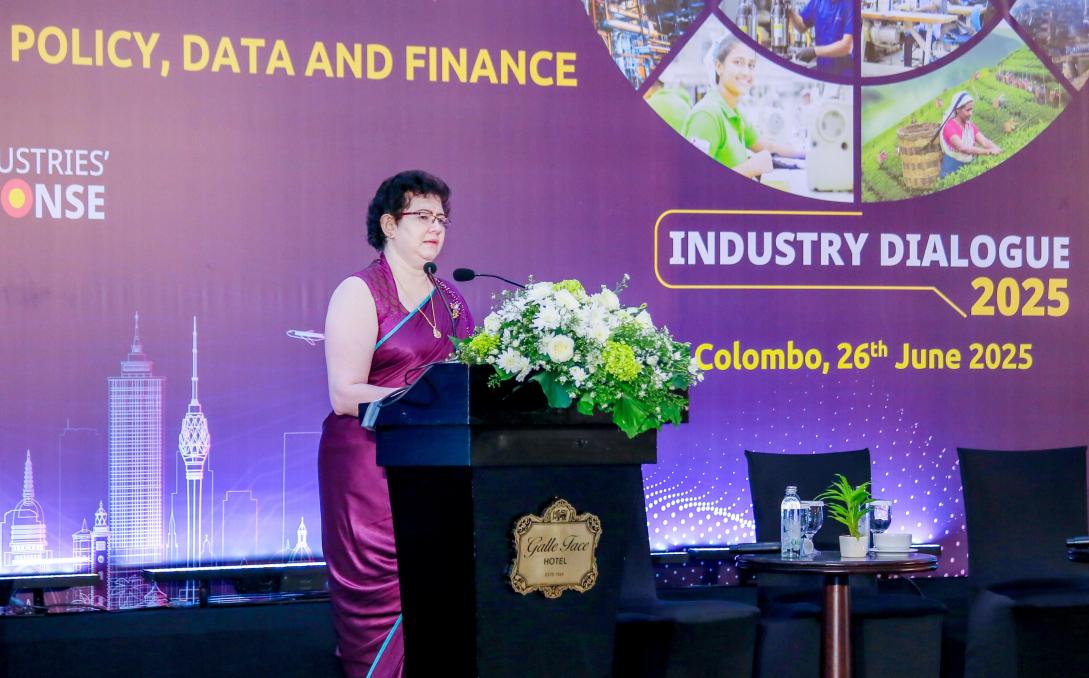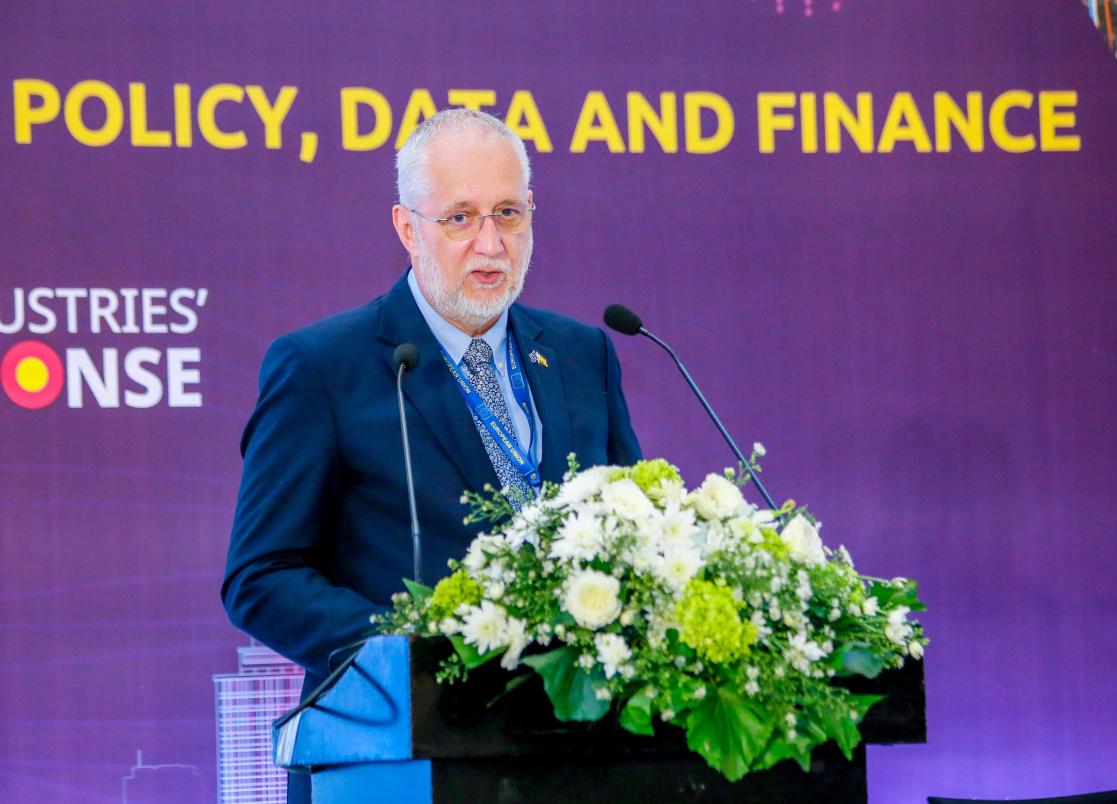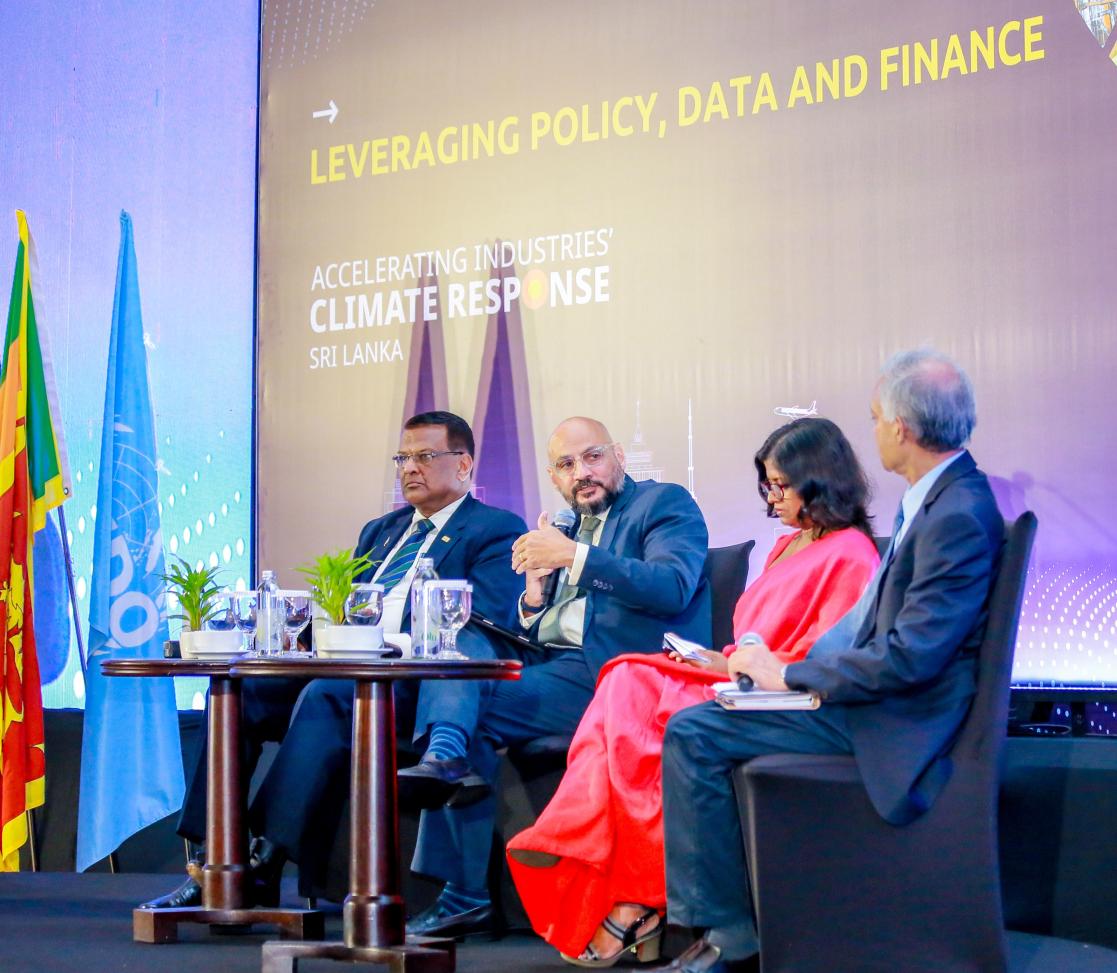European Union’s Global Gateway supports Sri Lankan Industries Commitment to Accelerate Climate Action and Contribute Ambitious National Targets

Sri Lanka’s industrial sector is under growing pressure to respond to the dual challenges of climate change and economic uncertainty. At the third edition of the Industry Dialogue supported by the European Union (EU), a national forum held in Colombo today, government officials, business leaders and international partners discussed how industry can play a more active role in meeting emissions targets and strengthening the country’s resilience in the face of rising environmental risks.
More than 150 delegates gathered at the Galle Face Hotel on 26 June for the third annual Industry Dialogue. Held under the theme “Accelerating Industry’s Climate Response in Sri Lanka: Leveraging Policy, Data and Finance”, the event was part of the EU-funded project Accelerating Industries’ Climate Response in Sri Lanka, led by the Government of Sri Lanka, and implemented by the United Nations Industrial Development Organization (UNIDO).
The discussions took place as Sri Lanka prepares to submit its updated national 2030 climate goals under the Paris agreement, known as the Nationally Determined Contributions (NDCs). The government says achieving these goals will require important shifts in how key industrial sectors operate.
“To claim a significant share in the global market our industries to have to beat the global competition through economic and sustainable transformation.” Said Ms. Thilaka Jayasundara, the Secretary, Ministry of Industries and Entrepreneurship Development, in her opening remarks. She further added “the EU funded Accelerating Industries Climate Response Sri Lanka (AICRSL) project has contributed immensely to make many energy intensive industries energy efficient and decarbonize themselves and created the momentum for the industries to lead the way."
The Director, Environment Planning and Economics, Ministry of Environment engaged in a panel discussion and said “The government has taken progressive initiatives to fill the gaps in industries climate response, energy efficiency and decarbonization.” She further added “We appreciate the support from the European Union, through AICRSL project, on supporting key initiatives to address these gaps, including strengthening National Green Reporting System (NGRS) and provide significant support in revising the guidelines”
Climate and economic crossroads
Sri Lanka remains highly vulnerable to the impacts of climate change, from rising temperatures and erratic rainfall to coastal erosion and increased frequency of extreme weather events. These pressures are being felt most acutely in the energy, agriculture, and industrial sectors—many of which are also grappling with rising costs, supply chain disruptions, and the aftershocks of the country’s recent economic crisis.
At the same time, industries are under growing pressure to remain competitive in global markets where low-carbon production and compliance with international environmental standards are becoming prerequisites.

EU, UNIDO
“Today's events have shown Sri Lanka’s commitment to adopting greater energy efficiency in its industrial sector, which is very encouraging to see. This approach supports climate change and environmental goals and aligns with international commitments in particular regarding the required updates to the NDCs. The EU is happy to support these initiatives in line with our Global Gateway strategy”, said Dr. Johann Hesse, Head of Cooperation at the Delegation of the European Union to Sri Lanka and the Maldives.
Driving action through clear policies, data and finance
Clear policies, accurate data, and access to finance are vital for Sri Lanka’s industries to meet climate targets. Delegates unpacked these topics, with the first session focused on the industrial sector’s role in Sri Lanka’s national climate strategy, including how relevant new international trade regulations may affect Sri Lankan exports.
The second session highlighted new data on energy use and greenhouse gas emissions in sectors including cement, apparel, rubber, and tea. These findings highlighted the critical importance of Sri Lanka’s new Monitoring, Reporting and Verification (MRV) system, which is intended to support evidence-based decisions across government and industry for emissions reductions
“Data driven decision making is one of the key success factors in achieving energy efficiency and emission reduction targets at industry level as well as national level” said Dr. Jagathdeva Vidanagama, Chief Technical Specialist, UNIDO. He further added “With accurate, relevent and accessible information, all stakeholders can have meaningful insights and effectively implement effective mitigation strategies and actions.”

EU, UNIDO
The final session examined the need to unlock green finance for industrial transformation. While financing mechanisms exist, many businesses, especially small and medium enterprises, struggle to access them due to technical and regulatory barriers.
Industry Leaders Recognised
Digital exhibits alongside the main sessions celebrated industrial sector leaders and changemakers who are already working to decarbonize their operations. Many of them have benefited from long-term training through the project. The showcase featured examples of cost-effective improvements made by businesses in multiple sectors, highlighting the feasibility of reducing emissions without sacrificing productivity.
The event was the third in a series of industry dialogues organized by the Project, aimed at enabling the government, the business community, the finance sector and civil society to share the technical knowledge, insights and solutions needed for a low-carbon future.
The Project is a Rs. 2.8 billion (€7.56-million) contribution financed by the European Union and in partnership with the Sri Lankan Government, and UNIDO. It is designed to help the country’s industrial sector cut its greenhouse gas emissions (GHG) by 7 per cent by 2030. The five-year initiative will work across a wide-range of areas, including measurement, reporting and verification of GHG emissions and creating policies to support industries to move to low-carbon technologies. Hundreds of industry managers and service providers will gain expertise on renewables and energy efficiency, and funding opportunities will be unlocked to increase low-carbon technology investments.
